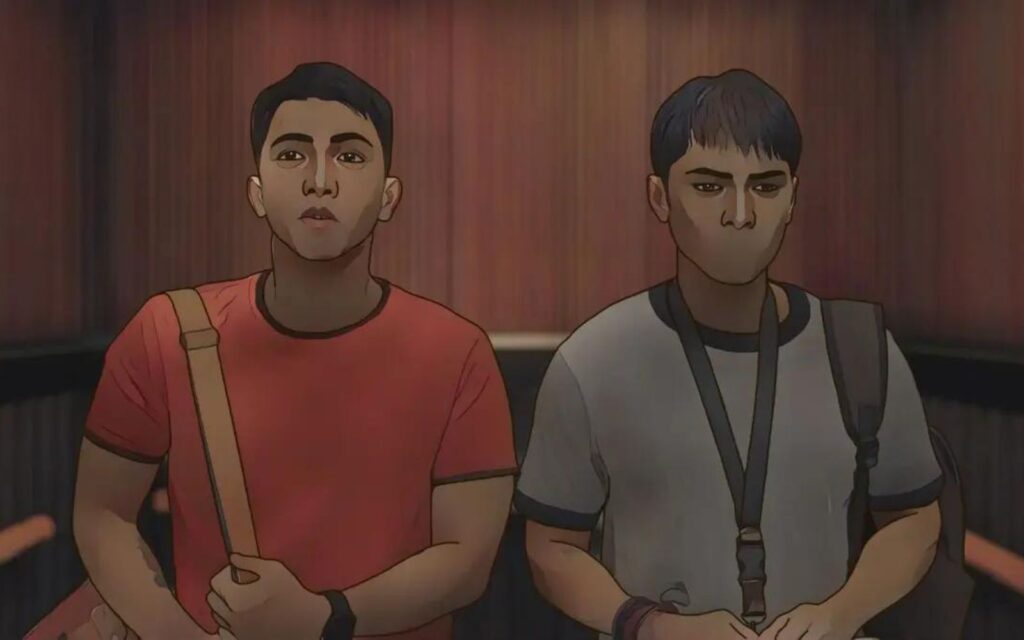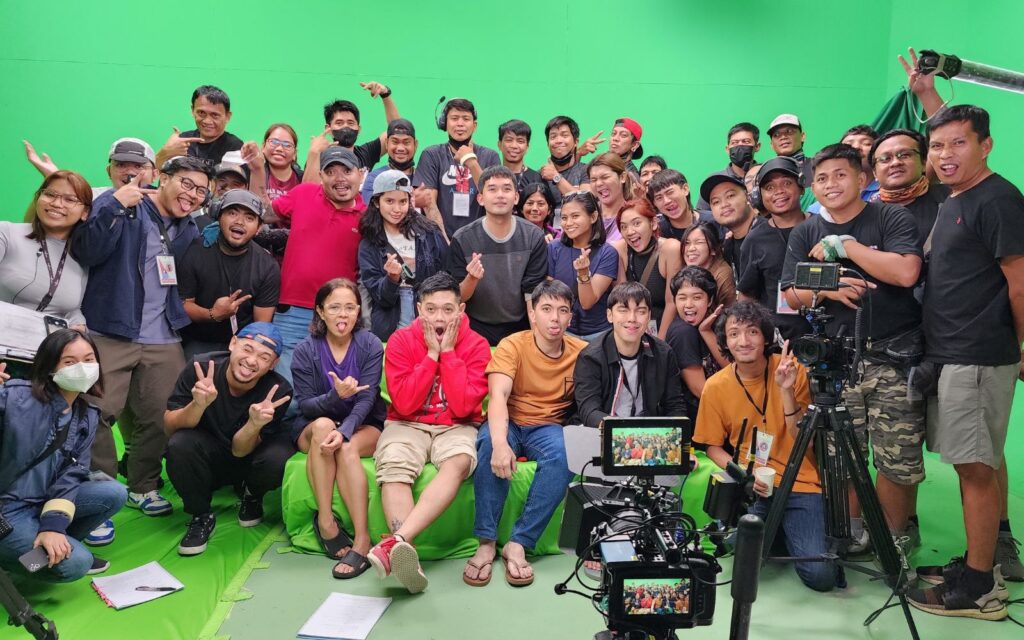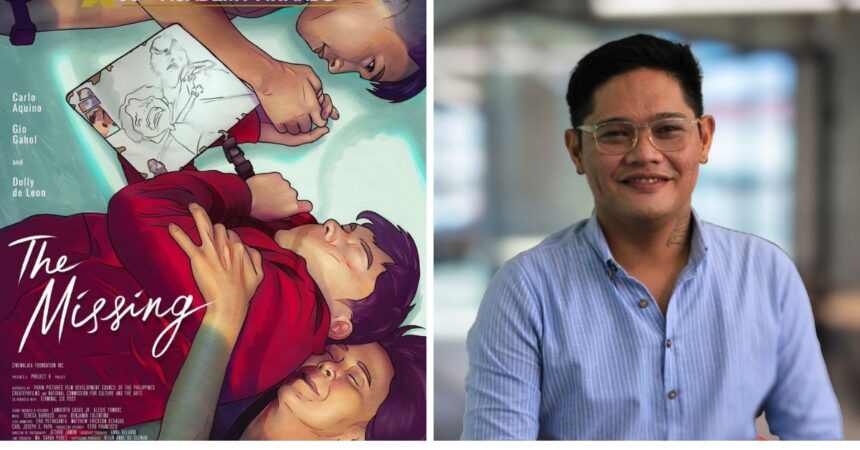It is humbling that our little film was selected to represent the country. It is an incredible honor. It’s great news for Filipino animators, not only for those who worked in the film.
Welcome to Hurwitz.TV’s Directors Interview Series, where we chat with some of the most influential filmmakers from all over the world.
In this series, you’ll have the opportunity to gain profound insights from the minds and creative journeys of these cinematic storytellers. Our goal is to explore the art of filmmaking, discover the inspirations and motivations that drive these directors, and delve into the captivating stories behind their remarkable works. From seasoned veterans to emerging talents, we talk about their artistic influences, memorable experiences, and the challenges they’ve faced along the way.
Today, I am joined by Filipino filmmaker Carl Papa, director of “Iti Mapukpukaw” (English title: The Missing) – the first animated film to win the Balanghai trophy for Best Film in the history of the Cinemalaya Independent Film Festival. The film will be submitted to the 96th Academy Awards as the Philippines’ official entry for the Best International Feature category.

Dennis: Thank you for joining us, Carl! To kick things off, can you share the story of you wanting and deciding to become a filmmaker? What drove you to pursue this career path?
Carl: When I was a kid I have always been fascinated with movies, particularly animated ones. I grew up drawing anime characters, comic books, etc. As for films in general, I grew up in a household where we watch movies all the time. But it was my mom who introduced me to watching classic movies. When I reached college, I really wanted to take up filmmaking in school, but we could not afford that, so I pursued Computer Science. When I started working as a Software Engineer, I saved up and bought my first video camera and that was my starting point in filmmaking.
Dennis: What was the greatest piece of advice given by a mentor that shaped the artist that you are today?
Carl: I never really had a formal mentor when it comes to filmmaking. But I did some classes with Surf Reyes and I keep to heart what he taught us back then: Creativity is an energy born of positive emotions. I never write down stories wherein my heart is not in the right place, I always keep in mind that I have to be sincere.
Dennis: Which movies and filmmakers inspire you the most?
Carl: I love Isao Takahata’s Studio Ghibli films, particularly “Only Yesterday”. It is not your typical animated film. It’s a slice-of-life film; no big fantastical moments, no talking animals and such. But for me, it is very well made and masterfully told. I also love Richard Linklater’s works, especially his rotoscope animation films. It was “Waking Life” that got me intrigued with this type of animation. I remember seeing it when I was younger and I was blown away by it. It was very crazy imaginative and bonkers, different and something I had not seen before.
Dennis: What are the most challenging and rewarding aspects of making a movie?
Carl: Since I write my own films, for me, the most challenging is coming up with a story that is cohesive and sincere. It takes me years before I finish one story. I keep on coming back to what I wrote and challenging myself. Also, since I make animated films, it in itself is a challenge already. It’s very rewarding to see the frames that you drew move on the screen.

Dennis: Now, let’s talk about “Iti Mapukpukaw.” Can you walk us through your creative process in making this movie? What inspired you to tell this story and explore the realm of unprocessed trauma and abuse through animation?
Carl: “Iti Mapukpukaw (The Missing)” is a very personal story. I used personal experience along with research and interviews to come up with the story of a mouthless man named Eric. Everybody that was on board with telling Eric’s story knew what we wanted to say to our audience and what we wanted them to feel. And that guided us when we were making the film.
It was clear as day from the get-go that this was going to be an animated film. The animation styles we used complement Eric’s journey. The rotoscope animation brings a certain feeling of confusion. It makes you think about whether things are real or not. Eric, in the film, is going through things that he does not entirely know are real or not. We also used traditional 2D hand-drawn animation for the flashbacks to evoke a feeling of nostalgia. Those scenes need to feel like actual memories by a kid.
Dennis: The film eventually became the first animated film to win the Balanghai trophy for Best Film in the history of the Cinemalaya Independent Film Festival. How would you describe that experience? And how do you feel that the film emotionally resonated with audiences?
Carl: My Cinemalaya journey was emotional, surreal, and happy – all at the same time. I always wanted to be part of Cinemalaya and it took me many many tries before I got in. To tell Eric’s story and to showcase Filipino animation in the festival, is such an honor. I’m eternally thankful to Cinemalaya for letting us do so.
We had one goal in mind when we joined Cinemalaya (and as with my other films), and that was to tell a sincere story. I think we did that and we showcased the film in Cinemalaya. I did not expect the kind of reception that we got, ditto the box office results. I am grateful that people were talking about the message of the film. Some people who have seen it messaged me, telling me their personal stories akin to what we told. It became sort of a small community discussion. All of these came to me as a surprise. My heart is full. I shall forever cherish this experience.
Dennis: Name a filmmaker or an actor you would love to collaborate with in the future and why.
Carl: I would love to collaborate with the team I had for “Iti Mapukpukaw” again. But if we’re talking about someone I haven’t worked with yet, it would have to be Elijah Canlas. I think he’s a really good actor and is one of the best of his generation. I wonder how he would put into character something I wrote.

Dennis: Just recently, the Film Academy of the Philippines has announced that “Iti Mapukpukaw” will be the Philippines’ official entry to the 2024 Academy Awards! How does it feel that you’re representing the country at the upcoming Oscars?
Carl: Really f-ing surprised and happy. I know it is a long shot but it is humbling that our little film was selected to represent the country. It is an incredible honor. It’s great news for Filipino animators, not only for those who worked in the Film.
…now we have to plan how to get the film to be noticed by Academy voters




